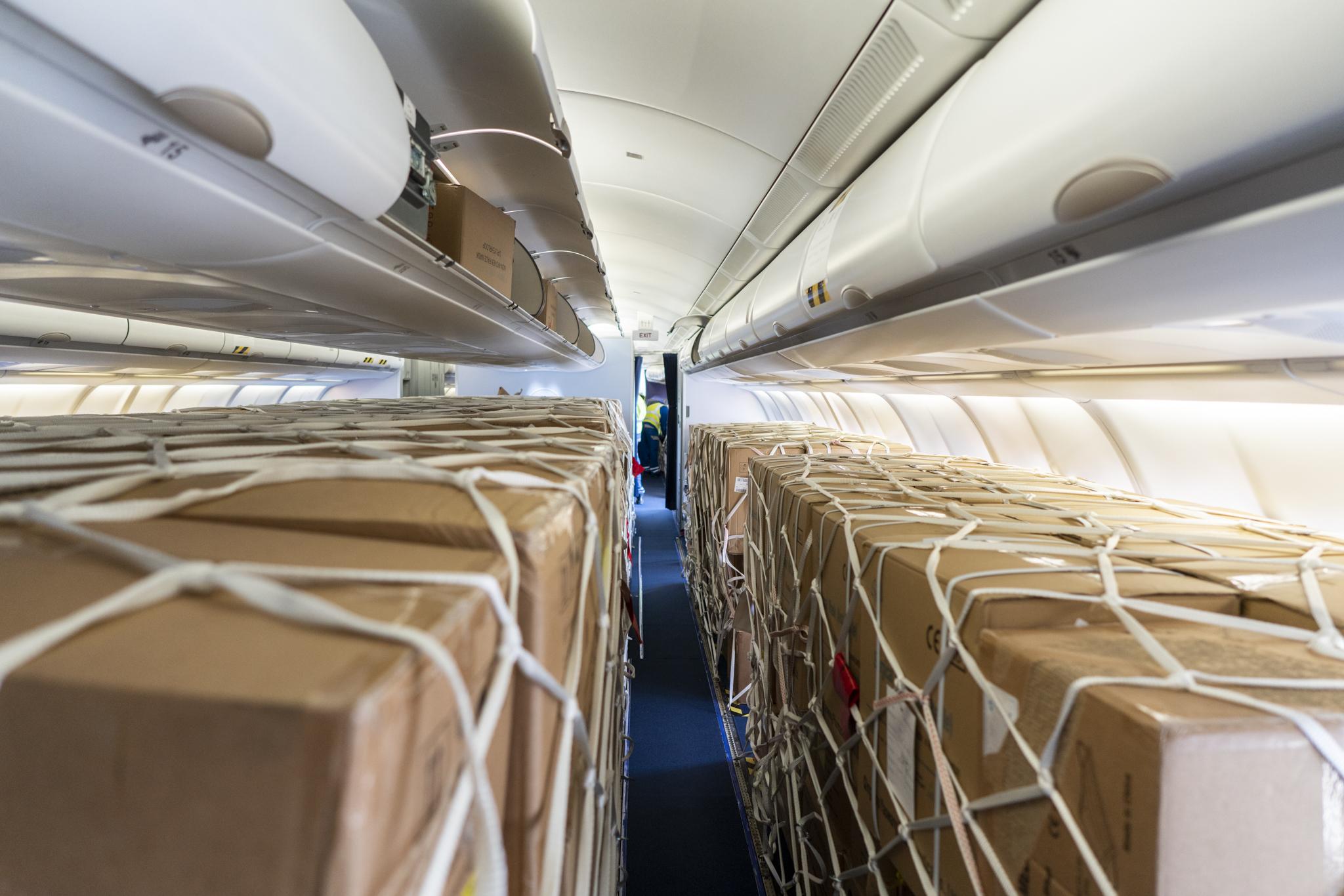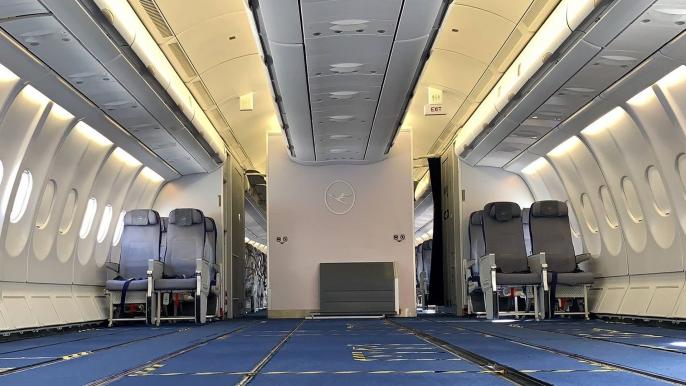
Lufthansa Technik (LHT) is accelerating efforts to obtain approval for temporary passenger-to-cargo modifications as airline interest in auxiliary freighters soars during the novel coronavirus crisis. According to the MRO, it has received inquiries from more than 40 airlines and has more than 15 projects for various aircraft types in the pipeline.
“Over the past days, we have received strong interest from different airlines regarding our passenger to freighter service capabilities,” says Henning Jochmann, senior director aircraft modification base, LHT. “As the workscope comprises much more than just taking out seats, you need engineering experts who know exactly what the challenges are and how to document the technical solutions correctly so that the aviation authorities agree.”
LHT points out that aircraft approved for passenger transport cannot typically just have cargo loaded in the cabin, since approval criteria differ between passenger cabins and cargo compartments. For instance, passenger cabins have lower structural load capacity and freighters require special fire protection measures—all of which must be taken into account, incorporated into technical documentation by qualified engineers and approved by regulators.

Last month, LHT obtained engineering order specific tailsign approvals from the German Federal Aviation Authority for passenger-to-cargo modifications on four Lufthansa A330-300 aircraft, which will now be used to transport medical goods to meet growing demand for airfreight. According to LHT, the modifications were completed within 36 hours.
The MRO is now targeting passenger-to-cargo supplemental type certificates (STC) for all major commercial aircraft types. One of the projects underway is the operational change of an Airbus A380 for an undisclosed customer, for which LHT is providing technical and engineering support.
“The current exemption and our solution for it can be transferred to our STC at a later point of time without major adjustments,” explains Jochmann. “This means that anyone who opts for LHT’s exceptional solution now can easily switch to the permanent STC solution later.”
LHT expects technical documentation and certification for these modifications to be available soon. In the meantime, LHT is offering development of tailsign specific engineering orders with defined special conditions for commercial operators to transport cargo in passenger compartments, which it says is available within 3-5 days upon receipt of order.





